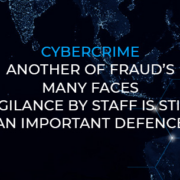Modern Slavery Awareness
Course Description
Are your staff equipped to identify and appropriately respond to modern slavery risks?
Do you need short, effective training to raise staff awareness of the indicators of modern slavery and how they should respond?
Modern slavery can affect any country: the United Nations estimates there are more than 40 million victims of modern slavery worldwide. It can occur in any sector or industry, and at any point in a supply chain. High-risk industries include fashion, agriculture, hospitality, construction, electronics and extractives. The risk of modern slavery occurring in supply chains increases for organisations that have extensive, complex or global supply chains. Your staff – including your front line and non-specialist staff – must be aware of the risks of modern slavery, and the ensuing consequences your business could face if they’re left unchecked.
Modern Slavery – Awareness is a single-module, awareness course that equips your staff with an understanding of:
- The definition of Modern Slavery
- How to explain the occurrence of modern slavery in supply chains
- What can be done to combat and prevent the existence of modern slavery
Who is this training for?
This training is an express, 10 minute variant of our three-module Modern Slavery – Australia and non-jurisdictional courses. It is designed to equip your front line staff with general awareness surrounding modern slavery.
It is also suitable for volunteers, contractors and students.
Course Outline
- Module 1: Modern Slavery Awareness








